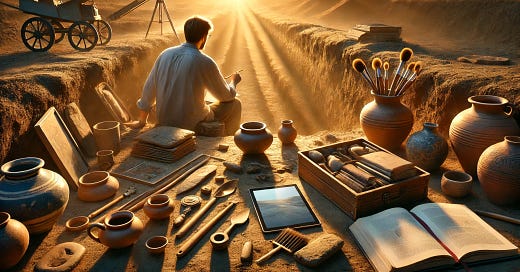Rojak #85: Global Heritage, Local Stories
Stories that didn't make it into the regular newsletter but are interesting anyway
This month’s Rojak begins with a reflection on the enduring legacy of Colin Renfrew - a familiar name for anyone studying archaeology as his text was likely on your recommended reading list in your first year. Renfrew was a titan in archaeology whose work reshaped the field’s approach to ethics and evidence. Renfrew wasn’t content to simply unearth the past, he also challenged the dubious provenance of artifacts and holding collectors, museums, and markets accountable. His principles resonate powerfully with another key story this month: the United States’ return of 1,440 looted antiquities to India, a striking example of how the tide is turning against cultural exploitation. His championing of science-driven archaeology finds echoes in Indonesia’s upcoming biodiversity survey, which aims to protect its endangered flora and fauna, and in the Vatican’s dazzling use of AI to create a digital twin of St. Peter’s Basilica.
These are just some of the stories found in this month’s edition of the Rojak - a supporters-only newsletter filled with news stories that didn’t make the cut into the regular newsletter, but were too interesting to just discard. Also in this edition we have cross-border collaborations in heritage preservation to the retelling of legends that continue to shape cultural identities.
If you’d like to be a supporter, the best way is to Buy me a Coffee!
Colin Renfrew, Pioneer of New Archaeology: Lord Colin Renfrew, a transformative figure in archaeology, has died at 87. Renowned for challenging traditional views, he used radiocarbon dating to revolutionize understanding of prehistoric Europe, arguing that innovations like Stonehenge originated locally rather than being influenced by the Mediterranean. As a professor, he inspired generations of archaeologists, founded the McDonald Institute at Cambridge, and co-wrote the seminal textbook Archaeology. His groundbreaking work spanned field excavations, cultural heritage protection, and advocacy against the illicit antiquities trade.
Keep reading with a 7-day free trial
Subscribe to Southeast Asian Archaeology to keep reading this post and get 7 days of free access to the full post archives.





